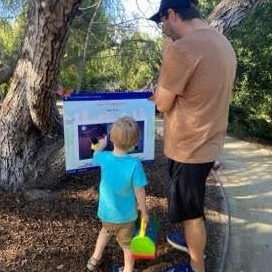As the COVID-19 situation continues to evolve globally, we wish to provide our members, tenants, partners and clients with an update on the steps our Society is taking to minimise disruption to our operations and enduring mission to promote science, the work of scientists and the scientific literacy of the Victorian community. We understand that this is an uncertain time for all, and we would like to reassure you of our preparedness and commitment to maintaining our various programs in these constrained circumstances. At this time we have decided to close our building in the Melbourne CBD. This means our premises will be unavailable for meetings and events until the end of 2020, subject to further assessment of the pandemic situation. We remain open and committed to our programs, if not physically present at our historic headquarters.
The COVID-19 pandemic presents our community with some unexpected situations. The RSV is no different, which is why I am writing to update you on our plans until the end of May. When the Executive met last Thursday, we discussed and approved a plan to keep our activities going for the benefit of our members and supporters – but in a way that keeps everyone safe. We agreed that from today until the end of May 2020 all our meetings and lectures will be held online to ensure the safety of our members, tenants, clients, guests and staff. The plans outlined here are subject to change as the COVID-19 situation continues or finishes. These are difficult times for all of us, but I want you to know that the Executive, Council and staff are all working to keep you informed of our activities and plans during this difficult time, and for ways to support the Victorian health authorities.
The IPCC aims to understand the influences driving the Earth’s climate variability and future climate scenarios. It does not conduct its own research or run models; instead, it provides a meta-analysis of the work of thousands of researchers across the globe to provide a scientific basis for governments to develop climate-related policies. The IPCC warns of risks to food production and security, water availability, species extinction, biodiversity reduction, coastal erosion, floods and droughts, negative impacts on human health, and population displacement. ‘The IPCC has been saying the same thing since the 1990s, but no one is listening,’ said Dr Chloe Mackallah, reading directly from the IPCC’s Fifth Assessment Report, which states that the effects of anthropogenic greenhouse gas emissions ‘are extremely likely to have been the dominant cause of the observed warming since the mid-20th century.’
I am delighted to advise the RSV Council Meeting of 27 February, 2020 unanimously agreed to appoint four leaders in the Victorian science community as Fellows of the Royal Society of Victoria.
Being elected a Fellow is the highest membership honour the Society can bestow on a person and entitles the Fellow to use of the postnominals ‘FRSV.’ Our four new Fellows will be formally inducted as part of the Society’s Annual General Meeting program which will be held on Thursday 14 May between 5 and 8pm. Members, please mark this event in your diary. You will receive an invitation with full details, including an address by Professor Marilyn Renfree AO, in late March.
On behalf of your Council, please join me in congratulating our four new Fellows.
Human sexuality and gender expression is a continuum, much in the same way that height and weight are. Not everyone fits into the categories of strictly straight, strictly gay, male or female. Dichotomising sexuality and gender ignores the continuum or clusters of individuals who don’t fall into one of two (and only two) categories and we can fall prey to thinking that one is “normal”. While people may find comfort in the “born this way” argument, looking for a “gay gene” can indicate a level of non-acceptance. If the variation between individuals is collapsed to a binary then the focus becomes on asking why one end of the spectrum exists, when the better question would be to ask how variation in sexuality evolved and came about.






